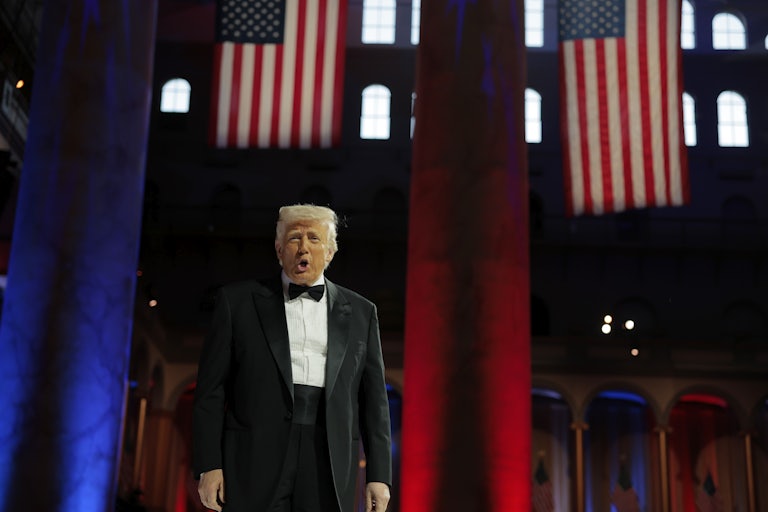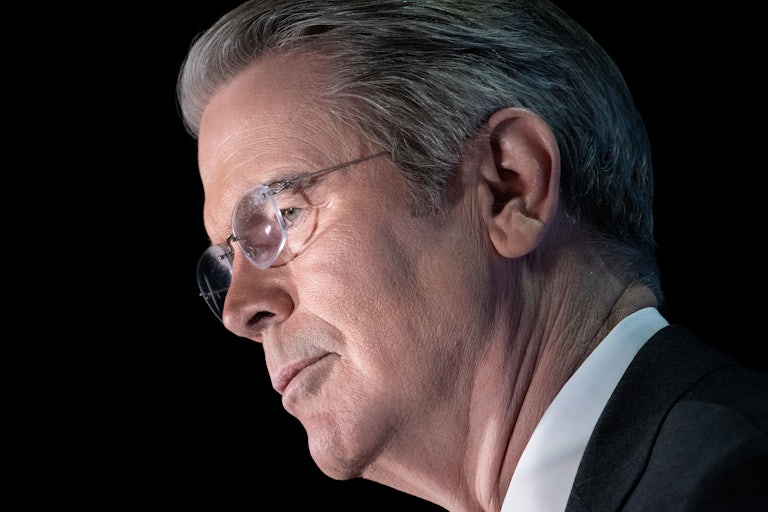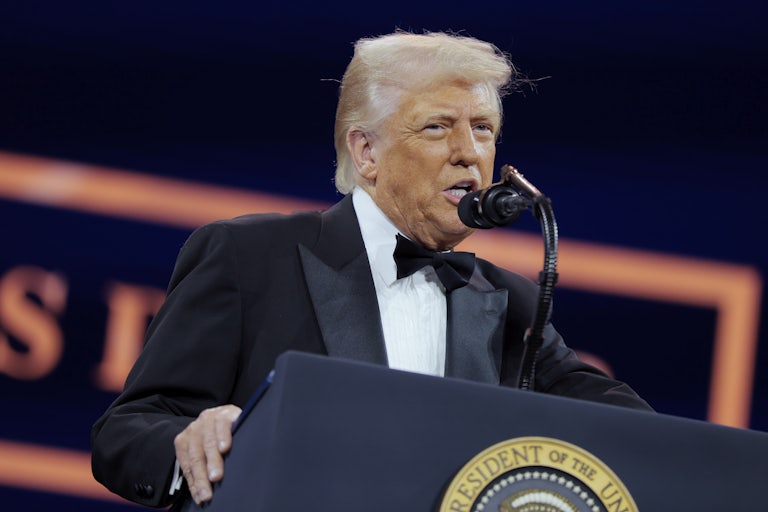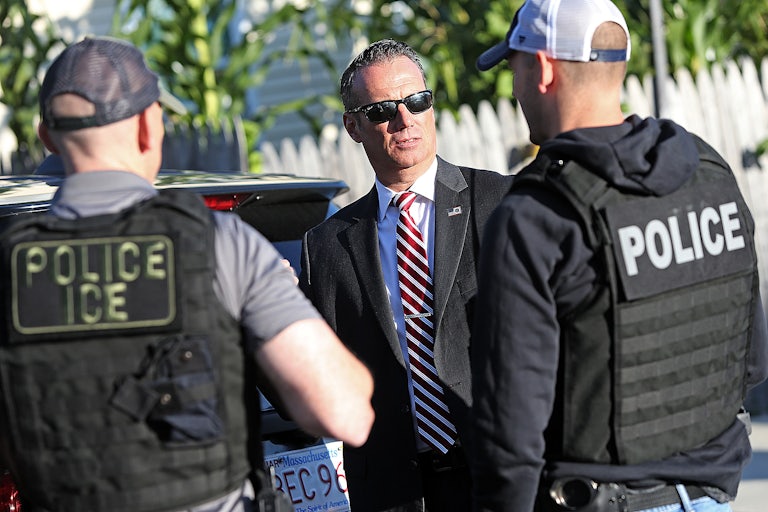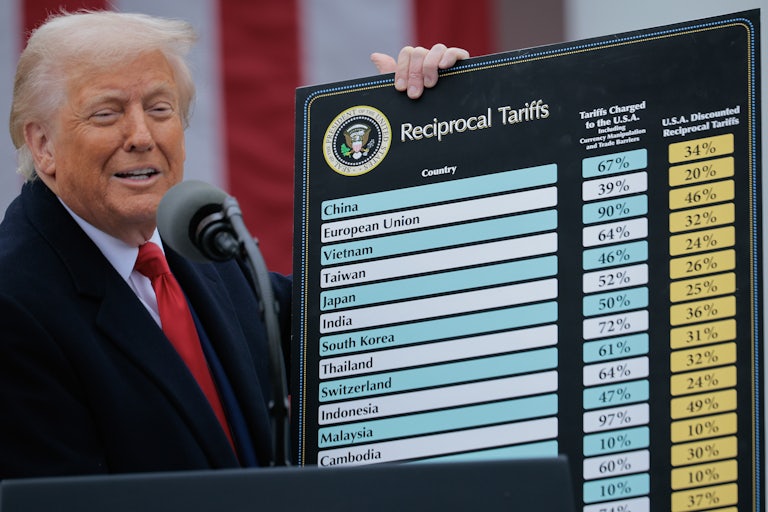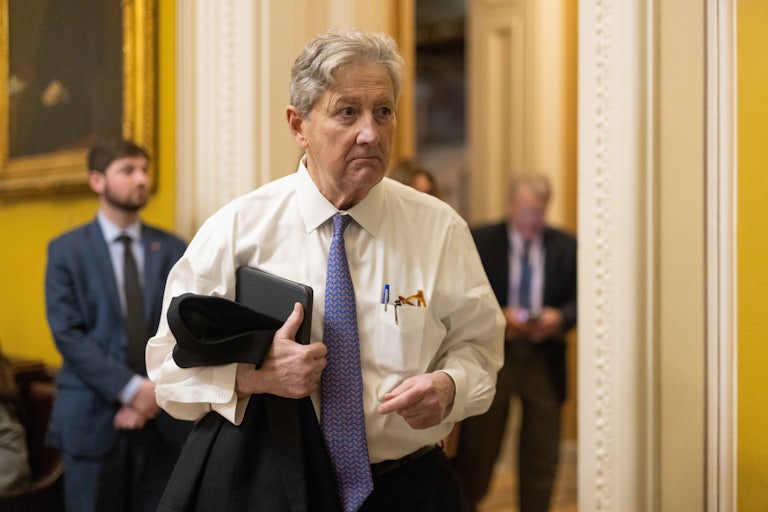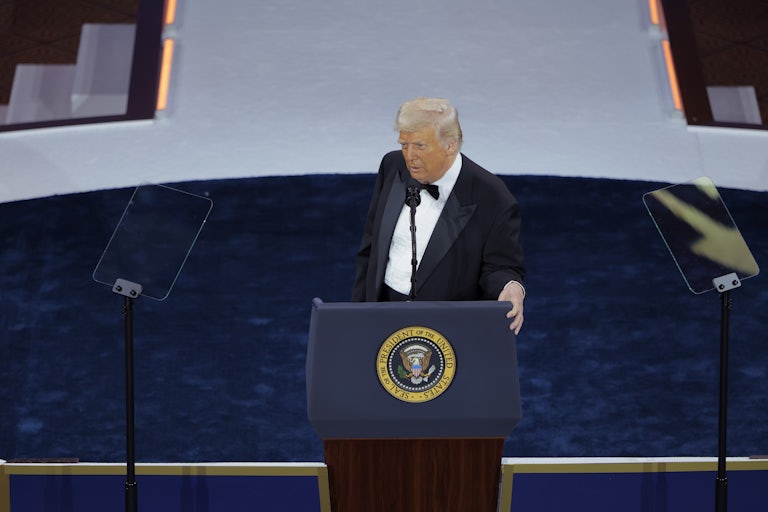ICE Deportee’s Lawyers Torch Trump DOJ’s Case: “No Actual Evidence”
Kilmar Abrego Garcia was deported to El Salvador despite having no ties to gangs.
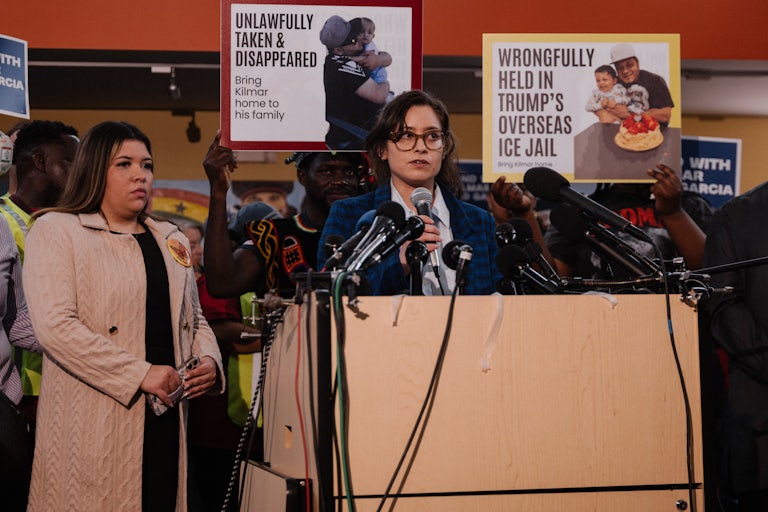
Lawyers for a man mistakenly deported to El Salvador slammed the Department of Justice for trying to claim that the foreign country could have its own reasons for keeping him in prison.
Kilmar Abrego Garcia was one of many alleged gang members that the Trump administration deported to El Salvador in mid-March, after invoking the Alien Enemies Act and denying detainees’ due process. The government later admitted that Abrego Garcia, who has no criminal record, was included on the flight manifest due to an “administrative error,” and had been subject to a protective order shielding him from deportation to El Salvador because he faced a legitimate threat of persecution there.
The Supreme Court on Monday halted a judge’s order to immediately retrieve Abrego Garcia. The government has continued to claim it cannot retrieve Abrego Garcia, who is among those incarcerated in El Slavador’s notorious mega-prison Centro de Confinamiento del Terrorismo, or CECOT, for a plethora of reasons. In a filing Monday, the DOJ claimed one more, alleging that El Salvador’s government “may have its own compelling reasons to detain” Abrego Garcia, and “has its own legal rationales for detaining members of … foreign terrorist groups like MS-13”—which the U.S. government has yet to actually demonstrate that Abrego Garcia is.
But, in an eight-page filing Wednesday, lawyers for Abrego Garcia shot down the DOJ’s attempt to “ominously” introduce a flimsy excuse for leaving him there.
“These vague speculations are forfeited because they were never previously asserted and, in any event, devoid of factual support,” the lawyers wrote.
“There is no actual evidence that any nation has a criminal charge against Abrego Garcia. The only evidence is that he has never been charged or convicted of a crime in any country. And, of course, Abrego Garcia has not even lived in El Salvador since 2011—some 14 years ago—when he was 16 years old, rendering the Government’s claim implausible,” the lawyers wrote. “If the Government has evidence as to Abrego Garcia, it should say so. It refuses.
“The Government’s retreat to innuendo cannot bear the weight of the extraordinary relief it seeks: to perpetuate an unlawful incarceration that the United States itself engineered,” the lawyers added.
